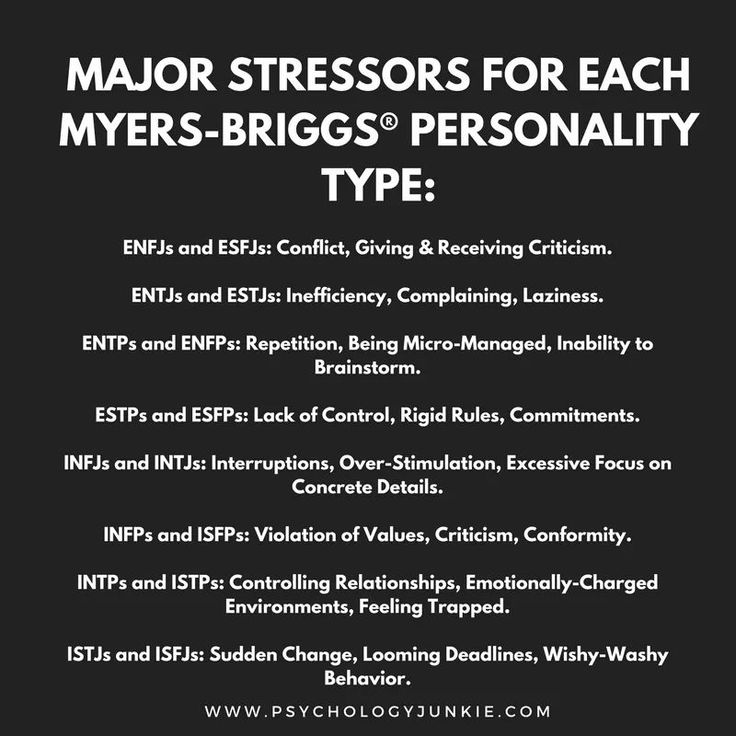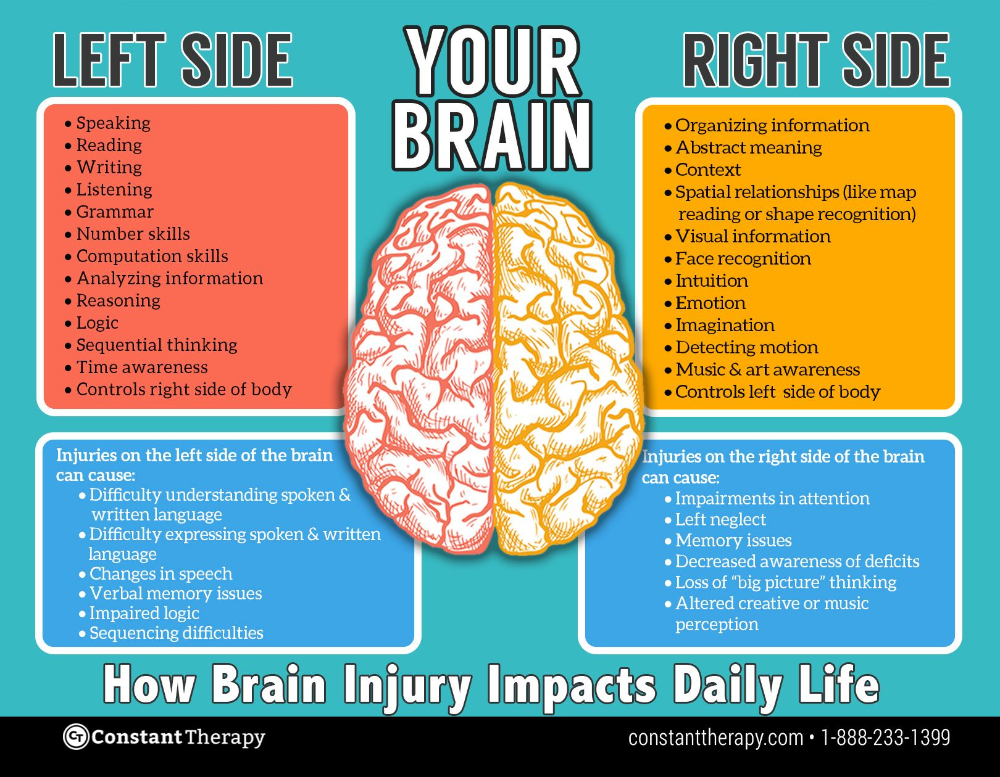Nortriptyline and weight gain
Does Nortriptyline Cause Weight Gain?
If you’re one of the estimated 8.4 percent of American adults affected by depression every year, your healthcare provider might give you a type of medication called an antidepressant to reduce the severity of your symptoms and help you feel and function better.
Antidepressants are generally effective. However, like all medications, they can potentially lead to side effects.
Nortriptyline is a tricyclic antidepressant (TCA) that’s often used to treat depression when other medications aren’t effective.
If you’re prescribed nortriptyline, you may be wondering if the rumors about one particular side effect are true. Namely, does nortriptyline cause weight gain?
Research generally suggests that nortriptyline is associated with a small to moderate degree of weight gain during treatment. However, the good news is that if you’re concerned about weight gain, there are simple steps that you can take to control your weight while using nortriptyline.
Below, we’ve explained what nortriptyline is, as well as how it works as a medication for clinical depression.
We’ve also discussed nortriptyline’s effects on weight, as well as what you can do to maintain a healthy body weight while you’re prescribed nortriptyline for depression.
What is Nortriptyline?
Nortriptyline is a tricyclic antidepressant, or TCA, that’s approved by the FDA as a treatment for major depressive disorder (MDD).
Like many other antidepressants, nortriptyline is also used off-label to treat a range of conditions other than its FDA-approved indication. Common off-label uses for nortriptyline include:
Diabetic neuropathy
Persistent myofascial pain
Postherpetic neuralgia
Trigeminal neuralgia
Other forms of chronic pain
Smoking cessation
Preventing migraines
Nortriptyline works by increasing levels of serotonin and norepinephrine -- two neurotransmitters that are involved in regulating certain aspects of your moods, thoughts and behavior.
Although the precise link between neurotransmitters and depression isn’t fully understood, most research suggests that low levels of these naturally-occurring chemicals are associated with an elevated risk of certain mental health issues, such as depressive disorders and/or anxiety.
Nortriptyline is available as a capsule and as an oral solution. It’s usually prescribed at a dosage of 25mg three to four times each day to treat depression, although your healthcare provider may adjust your dosage based on your depressive symptoms and response to treatment.
Does Nortriptyline Affect Your Weight?
Antidepressants have long been associated with certain side effects, and modest weight gain is arguably one of the most well known.
If you have a friend or family member who has taken an antidepressant before, you might have heard them mention weight gain as a potential side effect.
Although the link between antidepressants and excess weight gain isn’t as strong as generally thought, there is scientific evidence to suggest that nortriptyline can contribute to some degree of weight gain.
For example, a small, somewhat old study published in the Journal of Affective Disorders in the 1980s found that several tricyclic antidepressants, including nortriptyline, caused weight gain of 1.3 to 2.9 pounds per month in people treated for depression.
Over the course of six months of treatment, participants in the study gained between three and 16 pounds in total.
While this sounds like a significant degree of weight gain, it’s important to keep in mind that this study was far from perfect. It assessed weight in patients in a small group, with a total of just 40 participants, and didn’t feature any control group.
This means that some of the weight gain may have occurred as a result of changes in appetite that can occur when recovering from depression, not necessarily use of nortriptyline.
Other research suggests that while weight gain from nortriptyline can occur, it typically isn’t that significant in severity.
For example, a study of elderly people prescribed nortriptyline published in the 1990s found that only 17. 2 percent of participants gained weight while using nortriptyline, with 24 percent losing a clinically-significant amount of weight during the study period.
2 percent of participants gained weight while using nortriptyline, with 24 percent losing a clinically-significant amount of weight during the study period.
The researchers concluded that nortriptyline does not appear to be a promoter of weight gain, at least not in the group tested.
More recent research published in the journal JAMA Psychiatry claims that nortriptyline causes a lower degree of weight gain than certain selective serotonin reuptake inhibitors (SSRIs), such as the medication citalopram (Celexa®).
In general, although nortriptyline is linked to weight gain, the exact amount of weight gained by study participants varies from no weight gain at all to only a few pounds, to, in some cases, 10 pounds or more.
online mental health assessment
your mental health journey starts here
Why You May Gain Weight on Nortriptyline
Details are fairly scant on the exact functions through which nortriptyline may cause you to gain weight, but from what we’ve read, the key element seems to be another side effect: an increase in appetite.
Increased appetite is a known side effect of nortriptyline. While you’re using this medication, you may notice that you feel like eating more frequently than before starting treatment, or that you’re more satisfied after eating larger portions.
Left to our own devices, most of us only have a limited amount of self-control each day. If you’re prone to eating more after starting treatment with nortriptyline, you may notice some increase in absolute weight over the course of a few weeks or months.
There’s nothing wrong with snacking occasionally, of course, and it’s important to remember that many people could benefit from an increased appetite or extra calories, especially if you found it difficult to eat a normal amount of food while you were depressed.
It’s also possible that changes in appetite occur not as a side effect of nortriptyline, but simply as a result of your major depression symptoms becoming less severe.
Although the precise symptoms of depression can vary from one person to another, losing your appetite is a known issue.
Experts believe that this may be associated with reduced activity in your brain’s reward circuitry and regions of the brain responsible for monitoring your physiological state.
If you eat less while you’re depressed, then return to your usual eating habits after successfully treating your depression with nortriptyline or a similar antidepressant, you may experience mild weight gain as you gradually get back to your normal weight.
Is Weight Gain From Nortriptyline Dangerous?
So, is this moderate weight gain associated with nortriptyline unhealthy? Well, that depends. If you are underweight, or suddenly lost a significant amount of weight while you were depressed, gaining a small amount of weight while using nortriptyline could be a good thing.
However, gaining an excessive amount of weight can lead to obesity, which is associated with a significantly elevated risk of several major health issues.
These include an increased risk of cardiovascular disease and heart attack, diabetes, certain types of cancer, non-alcoholic fatty liver disease (NAFLD), obesity hypoventilation syndrome, gallstones, stroke and sleep apnea.
Obesity is also associated with high systolic and diastolic blood pressure, which can increase your risk of a number of serious health conditions.
It’s important to remember that no two people are exactly alike, and the health-related effects associated with weight gain can be very different depending on who you are.
If you’re physically active and in good health, gaining a small amount of weight may just be a minor inconvenience in your depression treatment process.
However, if you notice your weight increasing significantly while using nortriptyline, it’s a good idea to talk to your healthcare provider about how it may affect your health, as well as options for treating depression that may have less of an effect on your body composition.
Other Potential Side Effects of Nortriptyline
As a tricyclic antidepressant, nortriptyline has a slightly higher risk of causing adverse effects than newer treatments for depression, such as SSRIs and serotonin-norepinephrine reuptake inhibitors (SNRIs).
Most of these side effects are mild and temporary, although some can be more persistent and bothersome.
In addition to weight changes, other common side effects of nortriptyline include:
Drowsiness
Constipation
Dizziness
Blurred vision
Impaired coordination
Physical weakness
Nausea and vomiting
Xerostomia (dry mouth)
Excessive sweating
Disorientation
Confusion
Insomnia
Anxiety
Agitation
Restlessness
Skin rash and/or itchy skin
Galactorrhea (nipple discharge)
Changes in blood sugar levels
Breast gland tissue growth
Increased need to urinate
Sensitivity to sunlight
Urinary retention
Abnormal sensations
Tremoring
Like other antidepressants, nortriptyline may cause sexual side effects, including a low interest in sex during treatment. In men, nortriptyline may cause erectile dysfunction and other sexual performance issues.
In men, nortriptyline may cause erectile dysfunction and other sexual performance issues.
Although less common, nortriptyline can cause more serious side effects, including high blood pressure, orthostatic hypotension (low blood pressure while standing), fainting, impaired bowel movement, low white blood cells, swelling and liver damage.
Nortriptyline and similar tricyclic antidepressants may also affect your heart rhythm, causing an irregular heart rate and an increased risk of serious cardiovascular events.
Like other antidepressants, nortriptyline may cause drug interactions. When used at the same time as other medications that increase serotonin production, it may contribute to an elevated risk of serotonin syndrome.
Our guide to the side effects of tricyclic antidepressants explains these potential issues in more detail.
To keep yourself safe while using nortriptyline, make sure to inform your healthcare provider if you notice any severe or persistent side effects.
It’s also important to tell your healthcare provider about any underlying medical issues, as well as any medications you currently use or have used in the last 14 days, before you start taking nortriptyline or any other antidepressant medication.
How to Maintain a Healthy Weight While Using Nortriptyline
If you find yourself gaining weight, there’s a chance that it could be related to your medications, especially if you’re using TCAs like nortriptyline. But to know for sure, it’s important to see your healthcare provider for an exam and a discussion about changes.
To maintain a healthy weight while using nortriptyline, try to:
Eat a healthy, balanced diet. If you feel more motivated to eat than before, try to focus on eating healthy foods such as fruits, vegetables, whole grains, lean sources of protein and other nutritious ingredients, all while limiting high-salt or processed foods.
Monitor your total calorie intake.
 If your weight is starting to increase, pay attention to the total energy value of the food you eat. Even many healthy foods are high in calories, meaning they can contribute to unwanted weight gain when eaten frequently.
If your weight is starting to increase, pay attention to the total energy value of the food you eat. Even many healthy foods are high in calories, meaning they can contribute to unwanted weight gain when eaten frequently. Keep yourself physically active. Exercising not only burns calories and helps to keep your weight in the healthy range -- it can also stimulate the release of natural chemicals called endorphins, which may improve your mood and reduce depression symptoms.
If you feel unhappy about your weight, talk to your healthcare provider. If you feel like your weight is increasing too quickly, try reaching out to your healthcare provider to let them know.
Your healthcare provider may provide medical advice to help you maintain your weight, or switch you to a different type of antidepressant that’s less likely to affect your eating habits or body composition.
Alternatives to Nortriptyline
Because of their risk of causing side effects, nortriptyline and other tricyclic antidepressants tend not to be used as first-line forms of treatment for depression.
If you’re currently taking nortriptyline and feel like it might not be right for you due to weight gain or other side effects, it’s important to let your healthcare provider know.
Other options for treating depression are available, including newer antidepressants that have a lower risk of causing treatment-induced weight gain and other adverse effects.
These include selective serotonin reuptake inhibitors (SSRIs), which are more selective in their effects within your body than tricyclic antidepressants such as nortriptyline.
We offer several SSRIs online, including fluoxetine (Prozac®), sertraline (Zoloft®), paroxetine (Paxil®), citalopram (Celexa®), escitalopram (Lexapro®) and fluvoxamine (Luvox®).
We also offer several serotonin-norepinephrine reuptake inhibitors (SNRIs), such as duloxetine (Cymbalta®) and venlafaxine (Effexor®).
If you notice severe or persistent weight gain from nortriptyline or another antidepressant, your mental health provider may recommend switching to a medication called bupropion.
The active ingredient in Wellbutrin®, bupropion is an atypical antidepressant that’s less likely to cause weight gain than similar medications. In fact, some research suggests that bupropion can help to promote modest weight loss in people who are overweight or obese.
We offer bupropion through our online psychiatry platform, with all prescription medications for depression and anxiety requiring an online evaluation with a licensed psychiatry provider.
We also offer a range of other mental health services, including online therapy and anonymous online support groups.
psych meds online
psychiatrist-backed care, all from your couch
The Bottom Line on Nortriptyline and Weight Gain
Nortriptyline offers real benefits for treating depression. However, as a tricyclic antidepressant, it can cause side effects, and for many people, weight gain is one of these.
Although the average amount of weight gained while taking nortriptyline isn’t that significant, it is noticeable for many people. As such, it’s always best to talk to your healthcare provider if you’re prescribed nortriptyline and notice any unwanted weight effects.
As such, it’s always best to talk to your healthcare provider if you’re prescribed nortriptyline and notice any unwanted weight effects.
Your healthcare provider may switch you to a medication with a more favorable weight profile, or suggest changes that you can make to your eating habits and daily routine to help you maintain a stable, healthy weight.
They may also have additional recommendations to help you better manage your mental health condition, which may include therapy.
Interested in learning more about maintaining good mental health? You can find out more about dealing with depression, anxiety and other common mental health concerns with our free online mental health resources and content.
6 Sources
Hims & Hers has strict sourcing guidelines to ensure our content is accurate and current. We rely on peer-reviewed studies, academic research institutions, and medical associations. We strive to use primary sources and refrain from using tertiary references.
- Craft, L. L., & Perna, F. M. (2004). The Benefits of Exercise for the Clinically Depressed. Primary care companion to the Journal of clinical psychiatry, 6(3), 104–111. https://www.ncbi.nlm.nih.gov/pmc/articles/PMC474733/.
- Ng, C. W., How, C. H., & Ng, Y. P. (2017). Managing depression in primary care. Singapore medical journal, 58(8), 459–466. https://www.ncbi.nlm.nih.gov/pmc/articles/PMC5563525/.
- Merwar G, Gibbons JR, Hosseini SA, et al. Nortriptyline. Updated 2022 May 2. In: StatPearls Internet. Treasure Island (FL): StatPearls Publishing; 2022 Jan-. Available from: https://www.ncbi.nlm.nih.gov/books/NBK482214/.
- Berken GH, Weinstein DO, Stern WC. Weight gain. A side-effect of tricyclic antidepressants. J Affect Disord. 1984 Oct;7(2):133-8. doi: 10.1016/0165-0327(84)90031-4. PMID: 6238068. https://pubmed.ncbi.nlm.nih.gov/6238068/.
- Panuganti KK, Nguyen M, Kshirsagar RK. Obesity.
 Updated 2022 May 2. In: StatPearls Internet. Treasure Island (FL): StatPearls Publishing; 2022 Jan-. Available from: https://www.ncbi.nlm.nih.gov/books/NBK459357/.
Updated 2022 May 2. In: StatPearls Internet. Treasure Island (FL): StatPearls Publishing; 2022 Jan-. Available from: https://www.ncbi.nlm.nih.gov/books/NBK459357/. - Moraczewski J, Aedma KK. Tricyclic Antidepressants. Updated 2021 Nov 30. In: StatPearls Internet. Treasure Island (FL): StatPearls Publishing; 2022 Jan-. Available from: https://www.ncbi.nlm.nih.gov/books/NBK557791/.
This article is for informational purposes only and does not constitute medical advice. The information contained herein is not a substitute for and should never be relied upon for professional medical advice. Always talk to your doctor about the risks and benefits of any treatment. Learn more about our editorial standards here.
Weight gain. A side-effect of tricyclic antidepressants
. 1984 Oct;7(2):133-8.
doi: 10.1016/0165-0327(84)90031-4.
G H Berken, D O Weinstein, W C Stern
- PMID: 6238068
- DOI: 10.
 1016/0165-0327(84)90031-4
1016/0165-0327(84)90031-4
G H Berken et al. J Affect Disord. 1984 Oct.
. 1984 Oct;7(2):133-8.
doi: 10.1016/0165-0327(84)90031-4.
Authors
G H Berken, D O Weinstein, W C Stern
- PMID: 6238068
- DOI: 10.1016/0165-0327(84)90031-4
Abstract
Body weight and appetite were evaluated in 40 depressed outpatients from a private psychiatric practice who were receiving low-modest doses of tricyclic antidepressants. Amitriptyline (maximum of 150 mg/day), nortriptyline (maximum of 50 mg/day), and imipramine (maximum of 80 mg/day) were given for an average of 6 months of treatment. There was a mean weight increase of 1.3-2.9 lbs/month, which led to an average total weight gain of 3-16 lbs, depending on drug, dose and duration. These weight increases were linear over time and were accompanied by marked increases in the preference for sweets. Ultimately, excessive weight gain was the most common cause of discontinuation of treatment, occurring in one-half of the patients. Significant weight loss occurred upon discontinuation of drug. These findings show that chronic administration of low-modest doses of tricyclic antidepressants frequently cause considerable weight gain and can significantly interfere with the ability to provide long-term maintenance therapy.
There was a mean weight increase of 1.3-2.9 lbs/month, which led to an average total weight gain of 3-16 lbs, depending on drug, dose and duration. These weight increases were linear over time and were accompanied by marked increases in the preference for sweets. Ultimately, excessive weight gain was the most common cause of discontinuation of treatment, occurring in one-half of the patients. Significant weight loss occurred upon discontinuation of drug. These findings show that chronic administration of low-modest doses of tricyclic antidepressants frequently cause considerable weight gain and can significantly interfere with the ability to provide long-term maintenance therapy.
Similar articles
-
Dosing of antidepressants--the unknown art.
Jerling M. Jerling M. J Clin Psychopharmacol. 1995 Dec;15(6):435-9. doi: 10.1097/00004714-199512000-00008.
 J Clin Psychopharmacol. 1995. PMID: 8748433
J Clin Psychopharmacol. 1995. PMID: 8748433 -
Tricyclic antidepressant concentrations in plasma: an estimate of their sensitivity and specificity as a predictor of response.
Perry PJ, Zeilmann C, Arndt S. Perry PJ, et al. J Clin Psychopharmacol. 1994 Aug;14(4):230-40. J Clin Psychopharmacol. 1994. PMID: 7962678 Review.
-
[Tricyclic antidepressants dosage and depressed elderly inpatients: a retrospective pharmaco-epidemiologic study].
Ballon N, Siobud-Dorocant E, Even C, Slama F, Dardennes R. Ballon N, et al. Encephale. 2001 Jul-Aug;27(4):373-6. Encephale. 2001. PMID: 11686060 French.
-
Tricyclic antidepressant plasma levels after fluoxetine addition.

Vandel S, Bertschy G, Bonin B, Nezelof S, François TH, Vandel B, Sechter D, Bizouard P. Vandel S, et al. Neuropsychobiology. 1992;25(4):202-7. doi: 10.1159/000118838. Neuropsychobiology. 1992. PMID: 1454161
-
Implications of dosing tricyclic antidepressants and benzodiazepines in geriatrics.
Cutler NR, Narang PK. Cutler NR, et al. Psychiatr Clin North Am. 1984 Dec;7(4):845-61. Psychiatr Clin North Am. 1984. PMID: 6441158 Review.
See all similar articles
Cited by
-
Drug Safety in Episodic Migraine Management in Adults. Part 2: Preventive Treatments.
Chua AL, Mehla S, Orlova YY. Chua AL, et al. Curr Pain Headache Rep. 2022 Jul;26(7):493-504.
 doi: 10.1007/s11916-022-01051-9. Epub 2022 May 19. Curr Pain Headache Rep. 2022. PMID: 35587859 Review.
doi: 10.1007/s11916-022-01051-9. Epub 2022 May 19. Curr Pain Headache Rep. 2022. PMID: 35587859 Review. -
Erasing m6A-dependent transcription signature of stress-sensitive genes triggers antidepressant actions.
Wu PF, Han QQ, Chen FF, Shen TT, Li YH, Cao Y, Chen JG, Wang F. Wu PF, et al. Neurobiol Stress. 2021 Sep 4;15:100390. doi: 10.1016/j.ynstr.2021.100390. eCollection 2021 Nov. Neurobiol Stress. 2021. PMID: 34527794 Free PMC article.
-
The association between weight-promoting medication use and weight gain in postmenopausal women: findings from the Women's Health Initiative.
Stanford FC, Cena H, Biino G, Umoren O, Jimenez M, Freeman MP, Shadyab AH, Wild RA, Womack CR, Banack HR, Manson JE.
 Stanford FC, et al. Menopause. 2020 Oct;27(10):1117-1125. doi: 10.1097/GME.0000000000001589. Menopause. 2020. PMID: 32665534 Free PMC article.
Stanford FC, et al. Menopause. 2020 Oct;27(10):1117-1125. doi: 10.1097/GME.0000000000001589. Menopause. 2020. PMID: 32665534 Free PMC article. -
Medications that cause weight gain and alternatives in Canada: a narrative review.
Wharton S, Raiber L, Serodio KJ, Lee J, Christensen RA. Wharton S, et al. Diabetes Metab Syndr Obes. 2018 Aug 21;11:427-438. doi: 10.2147/DMSO.S171365. eCollection 2018. Diabetes Metab Syndr Obes. 2018. PMID: 30174450 Free PMC article. Review.
-
Moderating Effects of Exercise Duration and Intensity in Neuromuscular vs. Endurance Exercise Interventions for the Treatment of Depression: A Meta-Analytical Review.
Nebiker L, Lichtenstein E, Minghetti A, Zahner L, Gerber M, Faude O, Donath L.
 Nebiker L, et al. Front Psychiatry. 2018 Jul 19;9:305. doi: 10.3389/fpsyt.2018.00305. eCollection 2018. Front Psychiatry. 2018. PMID: 30072923 Free PMC article.
Nebiker L, et al. Front Psychiatry. 2018 Jul 19;9:305. doi: 10.3389/fpsyt.2018.00305. eCollection 2018. Front Psychiatry. 2018. PMID: 30072923 Free PMC article.
See all "Cited by" articles
MeSH terms
Substances
Weight gain
Numerous studies indicate that psychotropic drugs, including modern atypical antipsychotics, can lead to weight gain, while indirectly disrupting glucose metabolism and contributing to the development of diabetes. Weight gain is also associated with hypertension, coronary heart disease, stroke, varicose veins, and some other somatic diseases.
Only a few authors believe that overweight is less common in patients with schizophrenia than in other people. nine0003
Drugs with a sedative effect that limits the patient's physical activity can slow down the metabolism of substances, which also contributes to the patient's weight gain.
Mechanisms of weight gain with antipsychotics:
- Restriction of physical activity as a result of the sedative effect of the drug.
- The pleasure of eating as a means of combating depression.
- Changing the mechanism of saturation.
- Metabolism slowdown due to the effect of antipsychotics on various networks of neurons: serotonin (5HT1A receptor agonists cause hyperphagia, 5HT2 antagonists cause hypophagia), histamine (blockade), dopamine, norepinephrine, muscarinic, etc.
- Fluid retention in the body.
- Endocrine disorders: increase in prolactin, changes in insulin and cortisol secretion.
- Changes in the level of the hormone - leptin peptide in the blood plasma and changes in the sensitivity of the hypothalamus receptors to it.
Patients with schizophrenia have been observed to prefer sweet foods, drink large amounts of high-calorie drinks (cola and sprite), eat more, while getting a certain pleasure from eating. nine0003
nine0003
Many psychotropic drugs also have an anticholinergic effect that reduces metabolic processes. They delay the release of fluid from the body, contributing to endocrine system disorders (increase in prolactin, changes in the secretion of cortisol, insulin, etc.), which also increases the weight of patients.
In the development of obesity that occurs while taking certain atypical antipsychotics, the hormone peptide leptin is of great importance, which is produced by adipocytes in an amount that is directly proportional to the amount of fat in the cells of the body. nine0003
Leptin plays an important role in the regulation of body weight, affects appetite by blocking leptin receptors in the hypothalamic satiety center proportional to the mass of adipose tissue. It stimulates a sequence of responses that regulate appetite, metabolism, energy expenditure, and food satisfaction.
The peripheral effect of leptin is expressed in the suppression of intracellular lipid metabolism. Taking leptin reduces appetite and thus leads to weight loss. However, obesity is often accompanied by an increase in the level of leptin in the blood and, probably, a decrease in the sensitivity of the hypothalamic receptors to this hormone, which in turn leads to an increase in appetite and an increase in body weight. nine0003
Taking leptin reduces appetite and thus leads to weight loss. However, obesity is often accompanied by an increase in the level of leptin in the blood and, probably, a decrease in the sensitivity of the hypothalamic receptors to this hormone, which in turn leads to an increase in appetite and an increase in body weight. nine0003
Elevated blood leptin also has an effect on tissue insulin resistance. The connection of the latter with the development of obesity is well known. Insulin stimulates the secretion of leptin by adipocytes. The effect of leptin, both stimulating and inhibitory in relation to insulin, on the function of pancreatic beta cells was noted. In other words, not all patients with schizophrenia, even receiving antipsychotics such as olanzapine and clozapine, show weight gain. Currently, many experts explain this phenomenon as a genetic variation of pharmacodynamic factors. There is ample evidence to support this view, as well as the influence of genetic factors on eating behavior. Some researchers have found a relationship between single nucleotide polymorphisms - 759C/T and weight gain at 6 and 10 weeks of hospitalization in patients with a first psychotic episode treated with antipsychotics such as clozapine and risperidone. Other authors have determined that patients without the 759T allele have a higher risk of weight gain during a 6-week course of olanzapine therapy than patients with the 759T allele. At the same time, individuals without the allele - 759T of the 5HT2C receptor gained weight to a much greater extent than individuals with the T allele. Thus, it turned out that carriers of the T allele have a lower risk of weight gain than individuals without this allele. The study of polymorphisms of promoter regions in the 5HT2C serotonin receptor and leptin genes for the presence of an association with weight gain as a result of taking antipsychotics showed that patients prone to weight gain had a 5HT2C receptor polymorphism - 759C/T and leptin polymorphism - 2548A/G.
Some researchers have found a relationship between single nucleotide polymorphisms - 759C/T and weight gain at 6 and 10 weeks of hospitalization in patients with a first psychotic episode treated with antipsychotics such as clozapine and risperidone. Other authors have determined that patients without the 759T allele have a higher risk of weight gain during a 6-week course of olanzapine therapy than patients with the 759T allele. At the same time, individuals without the allele - 759T of the 5HT2C receptor gained weight to a much greater extent than individuals with the T allele. Thus, it turned out that carriers of the T allele have a lower risk of weight gain than individuals without this allele. The study of polymorphisms of promoter regions in the 5HT2C serotonin receptor and leptin genes for the presence of an association with weight gain as a result of taking antipsychotics showed that patients prone to weight gain had a 5HT2C receptor polymorphism - 759C/T and leptin polymorphism - 2548A/G. Leptin polymorphism - 2548 did not correlate with short-term weight gain, but significantly correlated with this indicator after 9 months of antipsychotic therapy. At the same time, variations in the H1 and H2 receptor genes were not associated with weight gain in patients treated with clozapine for 5 weeks.
Leptin polymorphism - 2548 did not correlate with short-term weight gain, but significantly correlated with this indicator after 9 months of antipsychotic therapy. At the same time, variations in the H1 and H2 receptor genes were not associated with weight gain in patients treated with clozapine for 5 weeks.
Tricyclic and tetracyclic antidepressants (amitriptyline, nortriptyline) significantly increase weight. Selective serotonin reuptake inhibitors (SSRIs), with the exception of paroxetine, are neutral in relation to weight gain, mirtazapine, on the contrary, increases body weight. Valproate and lithium have a fairly high potential in terms of weight gain. Among the classic antipsychotics, thioridazine increases weight the most, and pimozide has been reported to reduce body weight. nine0003
Usually, weight gain is observed in the first months of therapy and subsequently its rate decreases markedly in its severity. At the same time, the stigma of schizophrenia is aggravated by the stigma of obesity, which significantly affects the social status and the level of compliance of the patient with the medical staff.
Weight gain at 3-6 weeks of therapy is a predictor of overall weight gain.
The total level of high and low density lipoproteins practically differs little when taking various antipsychotics. When taking classical neuroleptics, the average level of triglycerides corresponds to 1.8 mmol / l. nine0003
The central norepinephrine and dopamine neural networks play an important role in the regulation of food intake.
It is likely that weight gain during treatment with some atypical antipsychotics (olanzapine) depends on many factors and includes effects on histamine (H1), serotonin receptors (5HT2A, 5HT2C), and alpha-adrenergic receptors (alpha 1 and alpha 2) , muscarinic M3 receptors and changes in plasma leptin levels.
Note that sulpiride (selective blocker of D2/D3 receptors), which noticeably increases the body weight of patients with schizophrenia, does not affect histamine receptors (H1). nine0003
Among atypical antipsychotics, clozapine therapy is most often associated with an increase in triglyceride levels and does not affect cholesterol levels.
Comparative studies of the effect of atypical antipsychotics on lipid metabolism in patients with schizophrenia indicate that patients treated with olanzapine exhibit higher triglyceride levels (mean level - 2.3 mmol / l) than those patients who received risperidone (mean level - 1.7 mmol / l) and ziprasidone. nine0003
Despite the small number of publications on the effect of quetiapine and zotepine on lipid metabolism, it can be assumed that due to the structural similarity of the latter with clozapine and olanzapine, these drugs may affect lipid levels.
In patients receiving clozapine and olanzapine, there is an increase in serum leptin levels, while, as noted above, white adipocyte leptin regulates insulin secretion and energy metabolism by acting on specific receptors (OB-R) of the hypothalamus, fat cells and skeletal muscles . nine0003
With respect to amisulpiride and aripiprazole, there are no data in the literature regarding their effect on lipid metabolism.
The risk group for weight gain includes women, individuals prone to narcissism, and patients with a hereditary burden of obesity.
Weight gain during therapy with psychotropic drugs makes it difficult to cooperate with the doctor and is, especially in women, one of the main reasons for discontinuation of the drug.
Unfortunately, at present, almost 60% of patients with schizophrenia with signs of dyslipedemia do not receive the therapy they need, aimed at correcting metabolic disorders. nine0003
If weight gain due to the use of antipsychotics is detected, a psychoeducational program specially designed for a particular case should be carried out with the patient and his relatives. Typically, the duration of such a program, which includes information about the features of the action of antipsychotics and a healthy lifestyle, is several weeks.
A strict diet, including the restriction of high-calorie foods, and physical exercise reduce the severity of the development of obesity that occurs against the background of taking psychotropic drugs. nine0003
nine0003
A significant increase in body weight when taking atypical antipsychotics (olanzapine, quetiapine, risperidone) is usually observed in 14-27% of cases by 6-8 weeks of therapy, in 40% of patients after 3.5 years.
Patients taking clozapine gain an average of 4.5 kg of weight within 10 weeks (Allison D. et al., 1999), with an annual weight gain ranging from 5.7 to 8.0 kg (Lamberti Y. et al., 1992). Up to 94% of patients taking olanzapine also gain weight (Gupta S. et al., 1999). Patients using olanzapine for 10 weeks increase their weight by
4.15 kg (Allison D. et al., 1999), an average of 12 kg per year (Beasley C., 1997).
Risperidone causes moderate to minimal weight gain (2.1 kg in 10 weeks (Allison D. et al., 1999), patients gain an average of 1.7 kg in one year) (Sachs G. 1999) .
For quetiapine, average weight gain over several months of therapy is between 1.0 and 4.0 kg (Borison R. et al., 1996). If against the background of taking respiridone, weight gain is especially noticeable in the first year and a half of using the drug, then the effect of quetiapine on this indicator lasts up to two years.
Ziprasidone causes the least weight gain (Allison D. et al., 1999). According to some researchers, almost the same weight gain is observed against the background of taking amisulpiride.
Weight changes with antipsychotics are shown in Table 42.
Table 42. Weight changes with antipsychotics
| Preparations | Average expected weight gain after one year of use |
| Clozapine | 5.7 |
| Olanzapine | 4.2 |
| Thioridazine | 2.8 |
| nine0002 Quetiapine | 2.5 |
| Risperidone | 1.7 |
| Haloperidol | 0.5 |
| Ziprasidone | 0. |
| Aripiprazole | 0.1 |
Weight gain while taking atypical antipsychotics does not depend much on the dosage of the atypical antipsychotic, but is associated with the effectiveness of the drug (positive therapeutic response), body mass index before the start of the medication, the age of the patient and, apparently, from belonging to one or another different ethnic group of people. nine0003
Due to the high risk of developing this complication of antipsychotic therapy, preliminary screening of patients at risk of weight gain with subsequent special control of body weight of this group of individuals is recommended.
To correct the weight of patients with schizophrenia taking atypical antipsychotics, a low-calorie diet, increased physical activity, in some cases drugs (bupropion, nizatedine, fluoxetine, fluvoxamine, etc.) and cognitive-behavioral therapy are recommended. nine0003
Activities to promote weight loss in patients with schizophrenia
- Diet therapy (low-calorie diet, dietary compliance, control weighing, calorie control of products)
- Aerobic physical activity
- Physical exercise
- Drug correction (bupropion, fluoxetine, topiramate, etc.
 )
)
Back to Table of Contents
Study: Antidepressants Lead to Weight Gain
May 25, 2018, 2:58 pm
The widespread use of antidepressants may contribute to rising rates of obesity in developed countries. The risk of becoming overweight in those who take drugs to combat depression for a long time is 21% higher. This conclusion was reached by doctors at King's College London. The work was published in the medical journal The BMJ. This is reported by The Independent.
"The widespread use of antidepressants may be one of the reasons for the long-term increase in the weight of the world's population," said one of the co-authors of the work, Martin Gulliford. nine0003
The study showed that the risk of weight gain increased after 2-3 years of taking antidepressants. The risk of developing obesity and the appearance of extra pounds in such patients was 29% higher.
As noted by the authors, the findings suggest that antidepressants should be used less often in the treatment of mild forms of depression. In such cases, cognitive behavioral therapy and exercise should be a priority.
In such cases, cognitive behavioral therapy and exercise should be a priority.
The study was based on health data from 300,000 British patients between 2004 and 2014. Information included data on patients taking antidepressants and their body mass indexes (BMI). The researchers adjusted for other factors that could influence weight, such as age, chronic illness, smoking, and other medications. nine0003
Weight gain of 5% of body weight or more within a year was 8.1% among patients not taking antidepressants. Among those who took medication to combat depression, the figure was 11.2%. After 3 years of taking antidepressants, the risk of gaining 5% of body weight per year increased to 46%. The study showed that the risk of becoming overweight is highest in the second and third years of taking antidepressants. In the next 6 years, the risk also remains elevated.
Researchers analyzed the effects of 12 common types of antidepressants on body weight. Thus, the drug mirtazapine (another name is remeron) in half of the cases led to an increase in the weight of patients by at least 5% of the body weight before taking the drugs.
 3
3 













